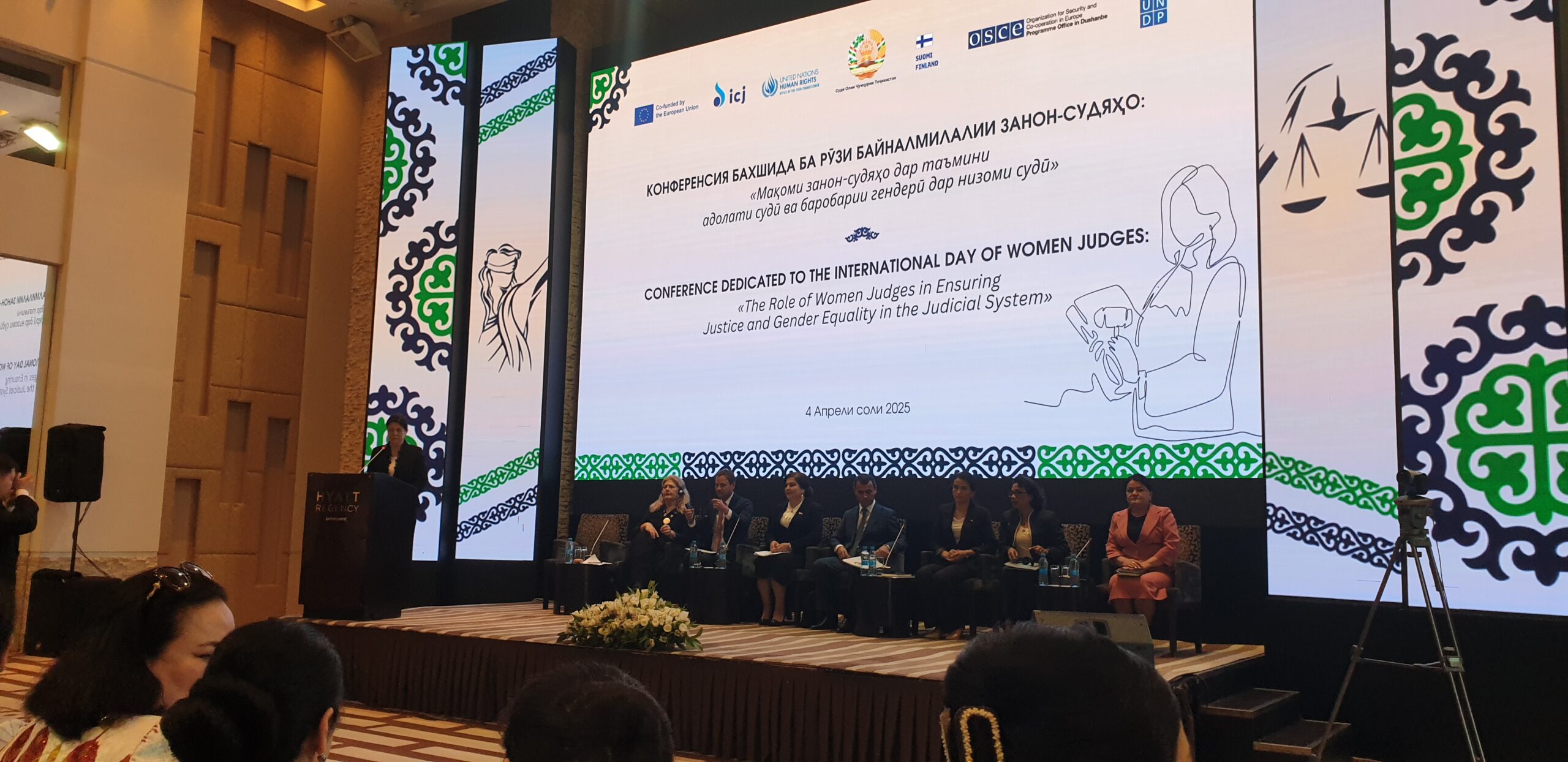The International Commission of Jurists (ICJ) and the Office of the United Nations High Commissioner for Human Rights (OHCHR), in cooperation with the Supreme Court of the Republic of Tajikistan, the United Nations Development Programme (UNDP), the OSCE Office in Dushanbe, and the Delegation of the European Union to Tajikistan, convened a national conference in Dushanbe marking the International Day of Women Judges. The conference addressed the critical role of women judges in advancing access to justice for women and achieving gender equality within the judiciary.
Discussions emphasized the systemic barriers faced by women judges, including entrenched gender stereotypes, limited institutional support, and underrepresentation in judicial leadership. Speakers highlighted the importance of increasing both the number and capacity of women judges to enhance justice delivery, particularly for survivors of gender-based discrimination and violence.
The ICJ presented findings from its September 2024 mission to Tajikistan, which focused on access to justice for survivors of gender-based violence. The mission identified significant legal and institutional shortcomings, including the absence of explicit criminalisation of domestic violence as a separate offence, limited provision of secondary legal aid to survivors, and inadequate application and enforcement of protective orders. Participants underscored the urgent need to ensure that national laws and practices are in compliance with international human rights standards, particularly those enshrined in the Convention on the Elimination of All Forms of Discrimination Against Women (CEDAW).
Speakers stressed that women judges play a crucial role in addressing harmful stereotypes, ensuring fair and sensitive treatment of survivors during judicial proceedings, and fostering a judicial environment that has zero tolerance towards gender-based violence. They advocated for enhanced judicial training on international human rights law and gender sensitivity as essential tools for reforming institutional practices.
Participants included representatives from the judiciary, the Executive Office of the President, the General Prosecutor’s Office, the Ministries of Justice and Internal Affairs, the Committee on Women and Family Affairs, and civil society organisations. The conference provided an important platform for dialogue on institutional reforms necessary to ensure women’s equitable access to justice.
The conference concluded with recommendations aimed at increasing the representation of women in judicial roles, institutionalising mandatory gender-sensitive training for judicial and law enforcement personnel, explicitly criminalising all forms of gender-based violence, and improving legal mechanisms to protect survivors.
Background
This conference was organised under the European Union-funded project “Women Empowerment through the Justice System in Tajikistan” (WEMJUST), implemented by the ICJ in cooperation with Tajikistan NGO Right and Prosperity.





